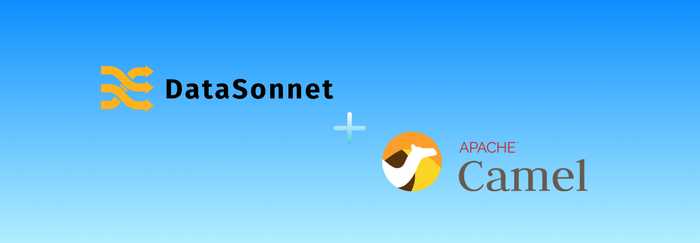We are very excited to announce that DataSonnet has been accepted as an official data transformation and scripting language into Apache Camel!
This announcement is the result of hard work and contributions from the DataSonnet developer community. The efforts were mainly from two contributing partners: ModusBox and Mountain State Software Solutions (MS3). Last week, ModusBox announced the release of version 2.0 and that MS3 had joined the DataSonnet project. One of MS3’s main contributions was a rock-solid Apache Camel component. This component was officially submitted for inclusion into Apache Camel and has now been merged into Apache Camel release 3.7 (LTS).
When the DataSonnet project was started, the project’s goal was to create an open source data transformation scripting language that rivaled commercially available options, giving users and companies long term ownership of their data transformations. Today, DataSonnet is a modern, JSON-centric, template-based open data transformation standard that can be embraced by many different tools and frameworks without fear of lock-in.
When the Apache Camel project expressed interest in making DataSonnet a first-class citizen in Camel, it validated the vision for the project. Apache Camel is a mature, well-adopted, and actively evolving open source integration framework – precisely the kind of place where we envisioned DataSonnet fitting.
We are excited to add DataSonnet’s capabilities to the Apache Camel developer community and are looking forward to enhancing and expanding DataSonnet to meet users’ needs. If you would like to see DataSonnet in action, check out the DataSonnet Playground. It is a web-based application that provides an easy-to-use environment to experiment with all of the transformation functionality included in DataSonnet. Just add your payload on the left, the transformation script in the middle, and watch the transformation output on the right. Additionally, there is a built-in docs pane to aid in learning about all of the available functions.
If you would like to learn more about DataSonnet or join the project, check out DataSonnet.com or visit the DataSonnet GitHub page.
